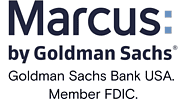Best Online CD Rates Of 2024
Top Yielding CDs - Unbeatable Rates and High Returns!
Top CD Rates - Secure Your Savings with High Returns
Certificates of Deposit (CDs) offer a secure way to grow your savings with fixed interest rates over a specified term. Unlike traditional savings accounts, CDs lock your money for a set period, often ranging from a few months to several years, providing higher returns in exchange for less liquidity.
Our top picks for CDs feature competitive interest rates, flexible terms, and low minimum deposit requirements. Ideal for conservative investors, CDs offer predictable returns and are an excellent option for achieving your long-term financial goals.
A Certificate of Deposit (CD) is a type of savings account with a fixed interest rate, typically higher than standard savings accounts, and a set maturity date. CD terms range from three months to five years, locking in your money for the duration. Recently, one-year CDs have offered higher rates than five-year CDs. Most CDs do not have monthly fees but include early withdrawal penalties and do not allow additional deposits after the initial one.
CDs are insured by the FDIC, ensuring your money is safe even if the bank fails.
In a world where savings account interest rates can be underwhelming, CDs offer higher earning potential. But not all CDs are the same. We've curated options that stand out, whether for short-term goals or long-term growth.
In 2024, the CD market is dynamic, with rates surpassing traditional savings methods. Our selections feature CDs with favorable terms, ensuring you not only lock away your money but also reap significant benefits. Discover the best CDs in 2024 and make smart financial decisions with unbeatable rates and terms.
CDs guarantee a return if you keep your money in the account for a predetermined period. For example, with a 4% APY on a one-year CD, you'll earn 4% interest on your investment if you leave the funds in the CD for the full term. Longer-term CDs typically offer higher rates.
Upon maturity, you can withdraw your principal plus accrued interest, typically with a seven to ten-day grace period. Early withdrawals incur penalties. If not withdrawn, CDs renew automatically at the current APY offered by the bank.
CDs usually have a fixed rate of return and a specified period, but there are various types to choose from:

Member FDIC
5.15% APY
Term Length: 1 Year
Min. Deposit: $500
at Marcus By Goldman Sachs

Member FDIC
at Barclays

Member FDIC
at Synchrony

Member FDIC
at Discover Bank
Set Goals: Determine your financial status and goals before investing in a CD. Ensure you have an emergency fund with three to six months of living expenses in a liquid savings account.
Choose the Appropriate Term Duration: CD terms range from one month to ten years. Select a term based on when you will need the money for specific goals.
Look for the Best Rates: Compare rates from different banks, especially online banks, which often offer higher rates due to lower operating costs.
Select a CD With an Affordable Minimum Deposit: Minimum deposit requirements vary. Choose a CD with a minimum deposit you can afford.
Confirm Any Early Withdrawal Fees: Understand the penalties for early withdrawal, which can vary greatly depending on the CD term.
Select the Appropriate CD Type: Consider various CD types, such as no-penalty, high-yield, jumbo, IRA, step-up, bump-up, and brokered CDs, to find one that best suits your needs.
Choose a Federally Insured Bank or Credit Union: Ensure the institution is covered by the NCUA or FDIC to protect your deposits up to $250,000.
Benefits: CDs offer predictability and safety, providing a guaranteed return without the risks associated with stocks and bonds. They are ideal for conservative investors looking for a secure place to grow their savings.
Drawbacks: CDs generally offer lower returns compared to riskier investments. If the CD's interest rate is lower than the current inflation rate, the real value of your investment may decrease over time.
If you can lock in your money for a specific period, a CD can be a safe, high-yielding investment. Choose a term you are comfortable with, compare rates, and select a federally insured bank or credit union to get the best value for your money.
Annuities provide a reliable income stream, ideal for retirement planning. By investing in a lump sum or making regular payments, you secure a series of future payments that can be tailored to your needs. With options like fixed, variable, and immediate or deferred annuities, you can choose the plan that best fits your financial goals.
Our recommended annuities offer stability and growth, ensuring you enjoy financial security in retirement. Explore these options to find the perfect annuity plan to safeguard your future.
5 Tips for Discovering the Best CD Accounts
Finding the best Certificate of Deposit (CD) accounts involves a combination of research and careful consideration of your financial goals. This is why our dedicated onlinefinance.net team has put together some tips and recommendations on how to find the best CD account for you.
Frequently Asked Questions (FAQs)
Yes, your money in a CD is insured by most banks and credit unions up to $250,000 per person per account type, including joint and single-owned accounts.
A certificate of deposit (CD) that waives fees for early withdrawals is known as a no-penalty CD. If you desire the interest that certificates of deposit (CDs) often offer above standard savings accounts, it may be an alluring option, but you could find that you need the money sooner than you think.
Which matters more to you, access to your money or rates? While you give up access to your money when you invest in high-yield CDs, some current rates are often more significant than the most excellent rates offered by savings accounts.
Depending on the length of the CD term and the bank’s policy, most CDs carry an early withdrawal penalty that can vary from several months to a year’s worth of interest collected. A no-penalty CD is the only CD that allows early withdrawals without incurring fees.
Compared to a standard savings account, certificates of deposit need a greater level of dedication because you are securing funds for a future date. This feature may benefit specific objectives but not others, like emergency savings.